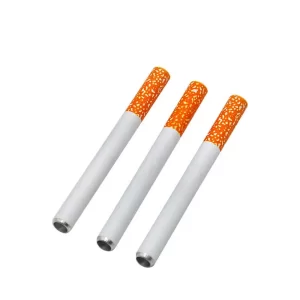Editors’ Note: “Freedom Fighter of the Month” has long been a popular feature in High Times magazine, dating back to the 1990s. Send nominations to hightimesfreedomfighters@gmail.com with the subject line “Freedom Fighter of the Month.” Tell us who you think should be recognized and how to best contact that person, so we can add them to our growing list of unsung heroes to highlight in communities like yours.
“I was drinking the Kool-Aid. I had no idea what drug policy was all about. I had no real idea as to the damage we were causing within our communities across this country.”
Major Neill Franklin spent 34 years in law enforcement. He began in undercover narcotics with the Maryland State Police and quickly rose through the ranks, eventually managing a bureau with hundreds of personnel. At the height of his career, Franklin had nine different drug task forces under his belt.
“I had criminal task forces and drug task forces for the entire eastern shore of Maryland and the metropolitan counties around Baltimore and Washington, DC,” recalls Franklin.
Time of Reckoning: War on Drugs Turns Deadly
While he was proud to protect and serve, there were two incidents on the job that caused Franklin to rethink his role as an enforcer in the War on Drugs. First was the death of a colleague and good friend, Corporal Ed Toatley, who was shot and killed during an undercover drug buy.
“It kind of put a pause, a pin in things, to where I started reflecting on the violence that was now quite evident throughout this campaign, and I’m like, ‘why is that?’” asks Franklin.
Also read: Freedom Fighter of the Month: Joelle Puccio’s Crusade to Protect Pregnant Women
Around the same time that Toatley was gunned down, Angela Dawson was working with police to identify people selling drugs in her family’s neighborhood. The person running the crew decided to send a message and set the family’s home on fire in the middle of the night.
“Killed Angela, killed her husband, and their five children. And so now you start paying attention to all these acts of violence that are directly related, not to drug use, but to our drug prohibition policies that make drugs more profitable than gold.”
Systemic Failure: Calculating the Damages of Prohibition
Franklin began to take a deeper look into the failures of the War on Drugs, examining his part in prohibition and calculating the damages caused.
“You’re just going through the numbers, trying to find somebody who can introduce you to a cocaine case, you know, to a heroin case. So, there was a lot of carnage left in the wake of that type of enforcement,” says Franklin. “Of course, the number of arrests continues to grow and grow and grow, and the money and the waste of time and resources.”
As Franklin continued to take stock, it didn’t take long before he realized that it wasn’t cocaine and heroin dealers he was putting behind bars, it was small-time users and neighborhood hustlers.
“I had no idea the number of people that we were incarcerating for minor offenses, and I’m not talking about violence. I’m not talking about people shooting up neighborhoods and communities,” Franklin recalls. “I’m talking about people who were using drugs. I’m talking about people who were selling small amounts and we were just filling up our jails and prisons. Had no idea, had not a clue.”
The Turning Point: Transforming the Criminal Justice System
Soon after, Franklin turned his sights to systemic transformation and joined Law Enforcement Action Partnership, a collection of criminal justice professionals who’ve been on the front lines fighting the failed War on Drugs. LEAP is made up of everyone from cops to corrections, probation and parole, even judges and prosecutors. The mission is to unite law enforcement professionals to advocate for criminal justice and drug policy reform that improves public safety.
“It’s a host of problems associated with the War on Drugs, including the violence that we see from city to city, from town to town, across this country,” declares Franklin. “The people who are consistently persecuted, arrested, jailed, incarcerated. As a result, the corruption that follows it, the abuses of power that follow it.”
Also read: Freedom Fighter Of The Month: Jason Washington’s Courageous Stand Against The Feds
Franklin eventually took the helm at LEAP as its Executive Director from 2010 to 2020. During that time, several groundbreaking reforms became reality—from the Rohrabacher-Farr Act in 2014, which prohibits federal interference in state medical marijuana laws, to the First Step Act in 2018, which fundamentally restructured the federal sentencing system, swiftly reversing dozens of years of draconian policy.
“Now, I’m starting to learn about the numbers of people incarcerated and the caste systems that were being created, and the racial implications and the poverty implications and the economic piece and just sheds a whole new light on things for me.”
To truly grasp how deeply entrenched the War on Drugs has become, and the devastation that it foists upon American families, Franklin recommends reading two books:
- The New Jim Crow: Mass Incarceration in the Age of Colorblindness by Michelle Alexander
- Poster Child: The Kemba Smith Story by Kemba Smith Pradia
Retirement Years: Medical Cannabis in an Aging Landscape
Franklin stepped away from his post at LEAP during the COVID-19 pandemic. After retirement, he moved to Florida with his wife to enjoy sunshine, sandy beaches, and warm breezes. As the aches and pains of aging caught up with him, Franklin obtained a recommendation to use medical cannabis. He’d certainly earned the right after decades spent fighting in the trenches of the Drug War.
“I do not want to be taking opiate pain medication. Not that I can’t, but I’d rather take medical cannabis,” says Franklin. “I know so many people who do and benefit in so many different ways, and on the other hand, I know so many people who have used opiates and have had some serious issues.”
Constitutional Conundrum: The Legal Quagmire of Marijuana and Guns
The choice between prescription painkillers and medical cannabis was easy for Franklin. But when he went to purchase a firearm, the medical cannabis identification card he obtained from the State of Florida put him in the middle of a complex legal quagmire.
“There’s a federal form that you have to fill out with all your personal information on it, and there’s a series of questions relative to ‘Are you a convicted felon? Are you a citizen?’” Franklin recollects. “One of those questions is ‘have you ever, do you use, illegal drugs?’”
Franklin was now faced with the same dilemma as many before. He could either disclose his status as a medical marijuana patient, which would automatically bar him from purchasing the firearm, or he could check the “No” box on the question that asks, “Are you an unlawful user of, or addicted to, marijuana or any depressant, stimulant, narcotic drug or any other controlled substance?”
The choice seems fairly benign until you are signing to certify that your answers are “true, correct and complete.” To ensure there’s no confusion, the form contains a warning in bold attached to the question that unequivocally states, “the use or possession of marijuana remains unlawful under federal law regardless of whether it has been legalized or decriminalized for medical or recreational purposes in the state where you reside.”
Franklin summarizes the predicament: “what the feds are saying [is] that if you’re a medical cannabis patient, it’s obvious you use cannabis, which we consider illegal at the federal level, you cannot legally buy, possess or have a firearm. This is wrong and bad in so many ways.”
Back to the Front Lines: Taking on the Feds’ Stance on Gun Ownership
Unwilling to forgo his Second Amendment right to bear arms, Franklin felt he had no choice but to send a letter to the State of Florida, relinquishing his medical cannabis registration. He would rather deal with the lasting pain from a myriad of neck, back, and knee surgeries than sacrifice his constitutional rights.
“I have a national concealed carry permit through LEOSA. It’s HR 218, a federal law that was passed years ago, where, as retired law enforcement, I can conceal carry across the country. I would be putting that in jeopardy.”
The more Franklin considered the conundrum, the more he felt called to take action. So, he joined with two other Florida residents and the Commissioner of the Department of Agriculture, which oversees the state’s medical marijuana program, to file a lawsuit against the federal government.
“Where’s your data? Where’s your information? Where’s your proof that medical cannabis users present the same level or type of danger?” questions Franklin. “There’s no doubt in my mind that we would win, that we will win when it goes to trial.”
The U.S. Department of Justice initially asked for the case to be dismissed. But the 11th Circuit Court ruled in August that the federal government failed to meet its burden to prove that Franklin and his co-litigants should be barred from possessing firearms as medical cannabis users. While the lawsuit is limited to medical cannabis use, the implications could stretch far beyond Florida patients.
From One to Three: The Impact of Rescheduling Cannabis
“If medical cannabis users aren’t considered as dangerous as users relative to gun ownership, then neither are adults who use,” points out Franklin.
He believes there are two paths forward from here. One is to resolve the question at the center of the federal lawsuit and the other is to reschedule cannabis.
“If we’re successful in rescheduling cannabis, I believe that would change it as well because that would then put it into the same category as a Schedule III prescription medication.”
Franklin acknowledges the controversy surrounding whether to reschedule or deschedule cannabis and ultimately agrees that it should be removed from the Controlled Substances Act altogether. However, he’s also acutely aware of the environment on Capitol Hill.
“You have to understand the climate in Congress right now, where very little, if anything, is being done. You get what you can get,” reasons Franklin. “Once we get there, then we work on the next move to deschedule it.”
Until then, Franklin says it’s critical for medical and recreational users alike to stay on top of the continual developments in marijuana policy. With your freedom and constitutional rights at stake, he cautions that it’s up to each and every one of us to know the laws where we live.
“[It’s] a patchwork of policy from coast to coast, from state to state, across this country. You know, you really have to do your research to find out at the state level what you can and can’t do in the state that you reside in, and it changes from time to time.”
UPDATE: U.S. Supreme Court to Weigh In
Shortly after our interview for this article, the U.S. Supreme Court granted a petition to hear a separate but related legal challenge involving marijuana and gun ownership. Later, the government filed a motion asking for additional time to submit its briefing.
“If the DOJ loses, then our case is settled,” surmises Franklin. “If adults who use on a regular basis maintain their 2nd Amendment rights, then medical users are home free.”
Franklin is inherently aware that the latest challenge also has the potential to derail his 11th Circuit case, but feels confident moving forward in a landscape where medical cannabis is viewed differently than adult use.
“It’s my understanding that this Administration is in favor of rescheduling cannabis from Schedule I to III. That being the case, they would also be in favor of not stripping away 2nd Amendment protections from medical cannabis patients,” concludes Franklin. “Using cannabis as a Schedule III drug would be no different than a patient using steroids or hydrocodone, and when prescribed such drugs, your 2nd Amendment protections remain intact.”
Photos courtesy of Major Neill Franklin.
The views expressed in this feature are those of Major Neill Franklin and do not necessarily reflect the views of High Times.


























